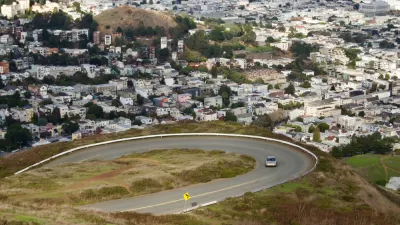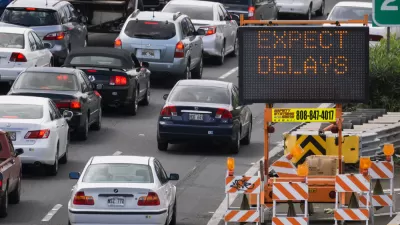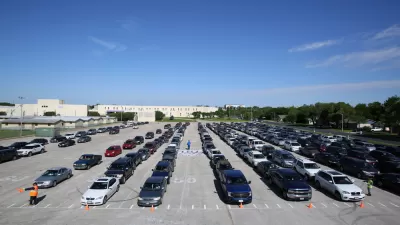The Week Without Driving challenge, scheduled Sept. 30 to Oct. 6 this year, encourages motorists, particularly policy makers and planning practitioners, to experience the challenges facing nondrivers in automobile-dependent communities.

Monday, September 30 – Sunday, October 6, 2024
If you can drive or afford a car, you may not understand what it’s like to rely on walking, rolling, transit and asking for rides. But for nearly a third of people living in the United States – people with disabilities, young people, seniors and people who can’t afford cars or gas – this is our every day.
We created the Week Without Driving challenge so that those who have the option to drive can learn firsthand about the barriers and challenges that nondrivers face and work with nondrivers to create more accessible communities for all.
How does the challenge work?

Every trip counts
You can get around however you want, but the challenge is not to drive yourself in any car. This applies to all your activities — not just your work commute. If you normally transport other family members or friends, it applies to those trips too.

Asking or paying for rides
You can ask someone else to drive you, but make a note of how much you “owe” this person in their time, and if you felt obligated to support them in other ways (ie, doing all the dishes). You can ride hail or taxis if they exist where you need to go, but again, think about how the cost could impact your decision to take this trip if this was regularly your only option.

Who has choices, what are your choices?
This isn’t a disability simulation or a test of how easily you can find alternatives. We know that it is far easier to give up your keys if you can afford to live in a walkable area well served by transit, or can outsource your driving and other transport and delivery needs to other people.

It’s okay to Drive – but reflect on what that means for nondrivers
Having to drive during the challenge does not signify failure. Sometimes the best reflection comes when someone participating in the challenge has to drive. The point is to consider how someone without that option would have coped, and what choices they might have made.
Impact
This week was a reminder that mobility is a human right. And it’s also a reminder that so many people in our region are excluded from this right, simply because driving for them is not an option.
— Girmay Zahilay, King County Councilmember, Washington State
How can I participate?
Anyone can participate in the Week Without Driving – whether you want to participate as an individual, organize your coworkers, or sign up as an elected leader or an advocacy organization.
If you’d like to find other organizations, look at our list of local and regional partners, and if you don’t see someone in your area, check out our templates and trainings to get started hosting the challenge.
FULL STORY: Week Without Driving

Alabama: Trump Terminates Settlements for Black Communities Harmed By Raw Sewage
Trump deemed the landmark civil rights agreement “illegal DEI and environmental justice policy.”

Planetizen Federal Action Tracker
A weekly monitor of how Trump’s orders and actions are impacting planners and planning in America.

How Atlanta Built 7,000 Housing Units in 3 Years
The city’s comprehensive, neighborhood-focused housing strategy focuses on identifying properties and land that can be repurposed for housing and encouraging development in underserved neighborhoods.

In Both Crashes and Crime, Public Transportation is Far Safer than Driving
Contrary to popular assumptions, public transportation has far lower crash and crime rates than automobile travel. For safer communities, improve and encourage transit travel.

Report: Zoning Reforms Should Complement Nashville’s Ambitious Transit Plan
Without reform, restrictive zoning codes will limit the impact of the city’s planned transit expansion and could exclude some of the residents who depend on transit the most.

Judge Orders Release of Frozen IRA, IIJA Funding
The decision is a victory for environmental groups who charged that freezing funds for critical infrastructure and disaster response programs caused “real and irreparable harm” to communities.
Urban Design for Planners 1: Software Tools
This six-course series explores essential urban design concepts using open source software and equips planners with the tools they need to participate fully in the urban design process.
Planning for Universal Design
Learn the tools for implementing Universal Design in planning regulations.
Jessamine County Fiscal Court
Caltrans
Institute for Housing and Urban Development Studies (IHS)
City of Grandview
Harvard GSD Executive Education
Toledo-Lucas County Plan Commissions
Salt Lake City
NYU Wagner Graduate School of Public Service





























